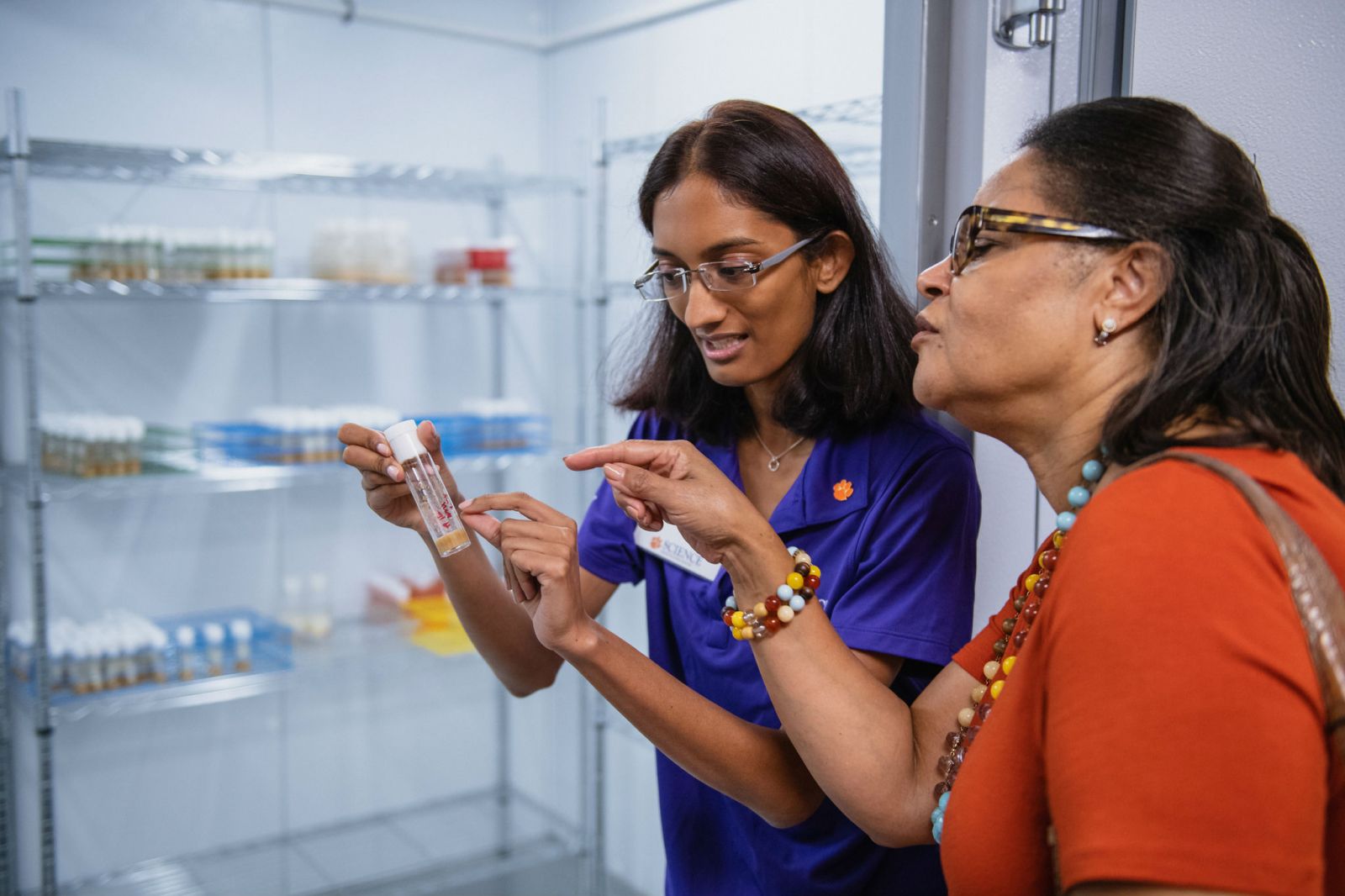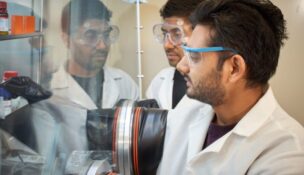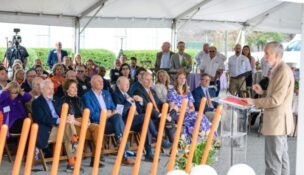Clemson University opens Center for Human Genetics
Staff Report //August 27, 2018//
The Clemson Center for Human Genetics officially opened for business Aug. 7 in Greenwood, celebrating with a gathering of supporters who met with scientists and toured the facility.
The Center for Human Genetics, part of Clemson’s College of Science, is piloted by a cadre of researchers equipped with what the university calls world-class laboratories and technologically advanced instrumentation. The center is dedicated to advancing knowledge of the fundamental principles by which genetic and environmental factors determine and predict healthy traits and susceptibility to disease, according to a news release from Clemson University.
The center is housed in Self Regional Hall with eight laboratories and several classrooms, conference rooms and offices for faculty and graduate students. The 17,000-square-foot building opened in February on the campus of the Greenwood Genetic Center.
 The facility will enable Clemson’s growing genetics program to collaborate closely with the Greenwood Genetic Center, combining basic science and clinical care, the news release said. The Clemson center will initially focus on discovering and developing early diagnostic tools and therapies for autism, cognitive developmental disorders, oncology and lysosomal disorders.
The facility will enable Clemson’s growing genetics program to collaborate closely with the Greenwood Genetic Center, combining basic science and clinical care, the news release said. The Clemson center will initially focus on discovering and developing early diagnostic tools and therapies for autism, cognitive developmental disorders, oncology and lysosomal disorders.
Trudy Mackay, director of the Center for Human Genetics, is recognized as one of the world’s leading authorities on the genetics of complex traits. Mackay is the Self Family Endowed Chair in Human Genetics and professor of genetics and biochemistry.
Mackay is joined at Clemson by Robert Anholt, the Provost’s Distinguished Professor of Genetics and Biochemistry and director of Faculty Excellence Initiatives in the College of Science.
“This is an exciting time in the field of human genetics and its connection to health and well-being,” Mackay said in the news release. “We now know that all of us are 99.9% identical in our DNA, but that 10th of a percent difference translates to 3 million small genetic differences between any two of us. The challenge now is to understand how these molecular differences in DNA affect our susceptibility to diseases like cancer and heart ailments.”
Mackay has won numerous international awards, including the prestigious Wolf Prize, and published more than 200 papers.
The dedication of the center this month was the culmination of 13 years of planning and collaboration among players from Clemson University and the Greenwood Genetic Center. The naming of Self Regional Hall recognized the ongoing support from Self Regional Healthcare, which has contributed $5.6 million to the facility, the news release said. In addition, the $4 million endowed chair held by Mackay was funded equally by the Self Family Foundation and the state of South Carolina, according to the news release.
“We are confident that our investment in the Self Family Endowed Chair for Human Genetics will pay huge dividends in furthering research to prevent, treat and cure genetic disorders,” Frank Wideman III, president of the Self Family Foundation, said in the news release. “We believe the synergy brought about by the intellectual capital of the Clemson Center for Human Genetics and that of the Greenwood Genetic Center has unlimited potential.”
Clemson President James P. Clements praised the Self family, local government in Greenwood and the Greenwood Partnership Alliance for their support.
“Our partnership with the Greenwood Genetic Center, along with the amazing support we are receiving from Self Regional Healthcare and the Self Family Foundation, will allow our faculty researchers to translate their findings into tangible treatment options more quickly and efficiently,” Clements said. “The work being done here has the potential to make a huge difference in improving lives, which is at the core of Clemson’s mission as a land-grant university.”
Mackay and Anholt came to Clemson from North Carolina State, where they had conducted research for a combined 55 years. Most of Mackay’s new Clemson team also hail from N.C. State.
The Greenwood Genetic Center is a nonprofit institute that focuses on clinical genetic services, diagnostic laboratory testing, educational programs and research. Mackay and her team will interact regularly with Greenwood Genetic Center personnel.
Dr. Steve Skinner, director of the Greenwood Genetic Center, said the impact of the collaboration between the two centers will be transformative for genomics medicine.
“With the research expertise of Drs. Mackay and Anholt, and GGC’s illustrious history of providing clinical care and human genetics advancements, our combined efforts will advance the understanding of human diseases and behaviors, as well as guide us toward potential treatments to improve the quality of life for those impacted by neurodevelopmental and other genetic disorders,” he said in the news release.
The main goals of the Center for Human Genetics include:
- Leverage comprehensive genetic approaches and comparative genomics to explain the fundamental principles of human complex traits, including disease risk.
- Promote precision medicine.
- Develop local, regional, national and international collaborations to advance human genetics.
- Educate the next generation of human geneticists.
- Promote public understanding of human genetics through community outreach.
Many of those goals will be accomplished by studying the inner workings of an insect that is smaller than a grain of rice. The fruit fly Drosophila melanogaster has turned out to be a remarkably powerful gene discovery system for large-scale, population-based genetic studies, according to the news release. About 70% of fly genes have human counterparts, which enable the construction of contextual genetic networks.
Using the fly as their catalyst, Mackay and her team will seek new breakthroughs in the treatment of addiction, glaucoma, alcohol and fatty liver disease, oxidative stress, heavy metal toxicity, aging and neurological disorders.
The Greenwood Genetic Center was founded in 1974.
This story originally appeared in the Aug. 20, 2018, print edition of GSA Business Report.
















